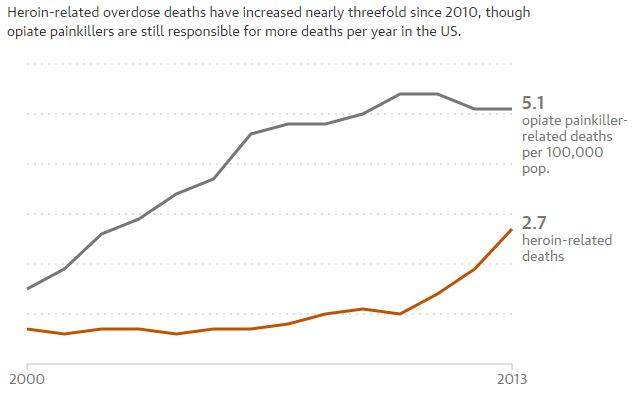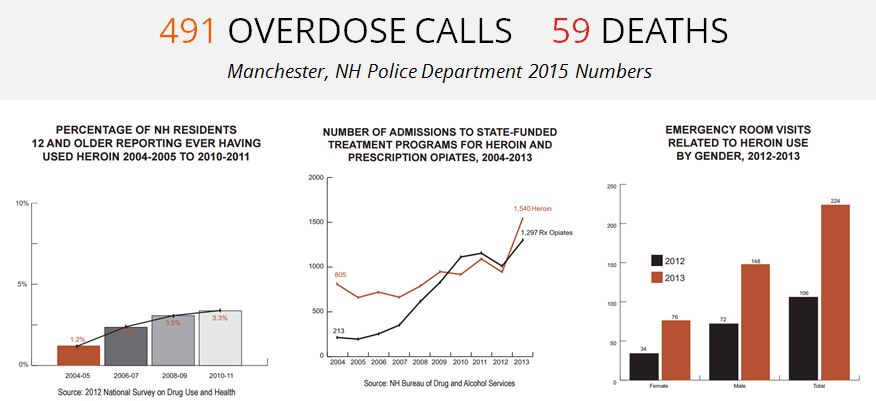Ironside Talks Fighting the Heroin Crisis in Manchester, NH
On Tuesday, February 16th, Ironside’s CEO Tim Kreytak spoke to a packed house at the IBM PartnerWorld Leadership Conference in Orlando, FL about the work we’ve done with the Manchester, NH Police Department to help combat the growing heroin crisis in their community not with guns, but with predictive analytics. Following an opening statement by IBM CEO Ginni Rometty, Tim wasted no time in driving home the positive impact our IronShield platform has had.
“It is estimated that 80 percent of property crime is committed by addicts,” he said. “Policing historically has been a reactive exercise: someone commits a crime and the police are called after the fact. Predictive hot spot policing leverages historical crime data, weather patterns, and other information overlayed on a GIS map of a particular city. It employs powerful predictive algorithms to forecast crime and put police in the right place at the right time to keep it from occurring.”
The facts back up Tim’s statement. According to the CDC, heroin-related deaths increased 286% between 2000 and 2013 , which from a police perspective means not only a danger to public health but also a lot more addicts on the streets committing crimes to pay for their habit.
Source: http://www.theguardian.com/us-news/2015/oct/10/heroin-crisis-new-hampshire-2016-presidential-candidates
New Hampshire has been one of the hardest hit states in the heroin crisis, with around 400 overdose-related deaths in 2015 alone according to NBC . As one of the state’s main urban centers, Manchester represents a good chunk of that total.
“The heroin crisis has had far reaching effects in many communities,” asserts Matt Barter, Ironside’s Industry Lead for Crime Prediction & Prevention. “We’ve seen a dramatic increase in drug associated crime, such as robberies, burglaries, and thefts from motor vehicles in many places as a result. Furthermore, the increase has strained the demand on the police resources available for affected communities. The predictive hot spot policing initiatives allow police departments to target and sharply decrease crimes associated with the epidemic and assist in deploying officers to the right place at the right time to have the greatest impact on drug-related crime, as well as providing an expandable platform that can target and make an impact on other crime types as well.”
Despite all this, though, as Tim made clear in his presentation, there’s some really good news too. IronShield is already making a difference in Manchester in the short time since the system has been active there.
“Since the solution went live this year, we’ve had a 12 percent reduction in robbery, a 21 percent reduction in burglary, and a 32 percent reduction in thefts from motor vehicles,” Tim stated. “We’re also very hopeful that this rate reduction can continue both in Manchester as well as the other cities where this solution is deployed.”
Together, those numbers add up to a clear win for Manchester PD as they fight back against the heroin crisis. We’re very proud to be providing the resources communities need to protect their people and stop crime before it happens. If you’d like to learn more about IronShield, we’ve got several resources you can check out. You can also see the full recording of Tim’s talk below.
For more on Tim’s talk and the other presenters at IBM PWLC, check out these articles:
References
- Hedegaard, Holly. NCHS Data Brief No. 190. http://www.cdc.gov/nchs/data/databriefs/db190.htm. March 2015.
- Medina, Daniel A. ‘Our Families Are Dying’: New Hampshire’s Heroin Crisis. http://www.nbcnews.com/nightly-news/our-families-are-dying-new-hampshire-s-heroin-crisis-n510661. February 2016.







